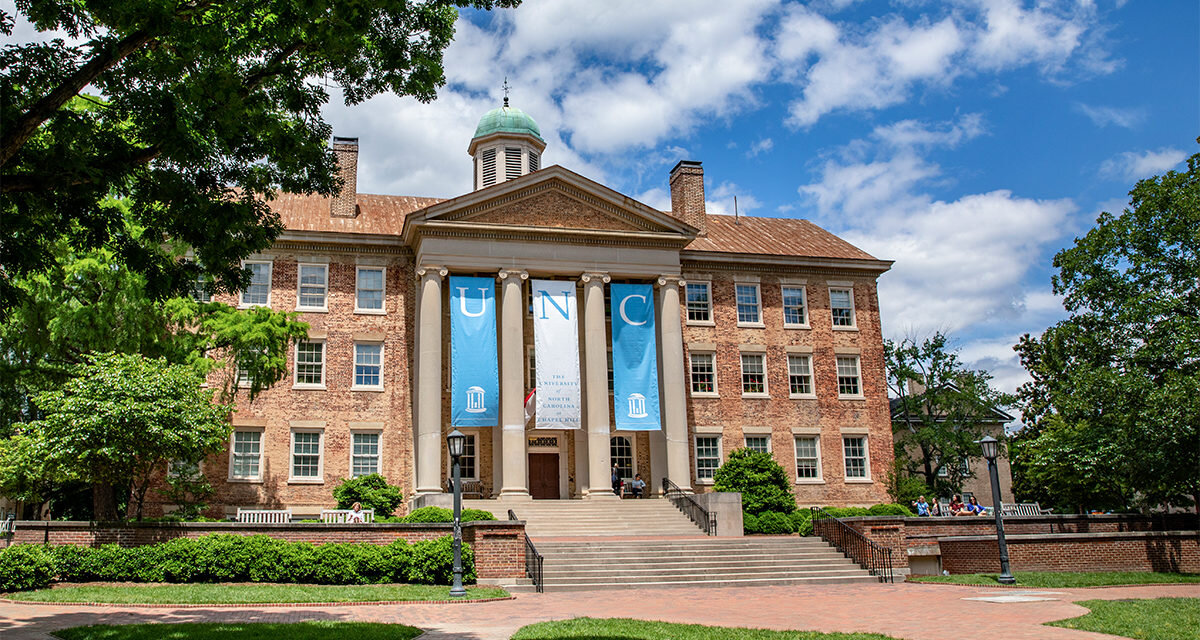Coalition for Carolina, Coalition for Hope
In the last five or so years, the university has been caught up in scandal after scandal. The main root of these scandals, Mimi Chapman, Frank Daniels A. Distinguished Professor, says, can be attributed to the governance structure of the university. Source: Chapelboro
The newly formed, bipartisan Coalition for Carolina aims to protect UNC-Chapel Hill from partisan politics, return the university’s autonomy to itself, and amplify good news from UNC-CH faculty, researchers, and students.
The coalition’s co-founders, Mimi Chapman, Frank Daniels A. Distinguished Professor, and Roger Perry, UNC-CH alumnus and former member of the Board of Trustees, are joined by students, faculty, staff, and the wider Chapel Hill community in fulfilling the coalition’s mission.
The coalition’s initial goals are to gauge public interest, uplift marginalized voices, and help the public understand how the governance structures behind the UNC system operate and have operated in the past. Long term though, the coalition hopes to help the university regain some of its autonomy that has been lost to the increasingly partisan Board of Governors. Perry hopes that the Board of Governors and the Board of Trustees will “have an epiphany that Carolina is well-run” and will refrain from “injecting themselves into the decision making process of how a campus is run.”
In the last five or so years, the university has been caught up in scandal after scandal. The main root of these scandals, Chapman says, can be attributed to the governance structure of the university. The university has two overarching boards that govern it: the Board of Governors and the Board of Trustees.
The Board of Governors is responsible for the planning, development, and overall governance of the UNC System as it also elects the president of the UNC system. The Board is selected by the two houses of the General Assembly: the Senate, where Republicans have a slim majority, and the House of Representatives, where the Republicans have a wider majority.
The Board of Trustees promotes the sound development of the university and each of the thirteen members serves as an advisor to the Board of Governors. Of the thirteen members, four are appointed by the governor, eight are elected by the Board of Governors, and the president of the student government is an ex officio member.
The spokeswoman for Senate leader Phil Berger has said, in response to the creation of the coalition, that “this [Coalition for Carolina] is just another conspiracy-driven blame game. These perpetual malcontents should examine why 68% of conservative students at UNC reported self-censoring their views in class. Perhaps it has something to do with top university staff putting to paper their desire to extinguish viewpoint diversity.”
The Boards have taken an increasingly active role in university affairs and choices, which often do not have the university’s best interest at heart. Recent instances include Silent Sam, where the Board of Governors attempted to reach a $2.5 million agreement with the Sons of Confederate Veterans before it was struck down in court, the blunder that was the fall 2020 reopening and closing of campus due to COVID, and the tenure denial for Nikole Hannah-Jones, where the Board of Trustees denied and then dragged out her request for tenure and catapulted the university into national newspapers once again.
Although coalition spearheads are optimistic about its success, the Board has a history of squashing critical voices. More recently, the Board of Governors refused to reappoint a twice-reappointed UNC Law Professor, Eric Muller to the Board of the UNC Press. On the UNC Press Board, Muller was outspoken about the university’s handling of Silent Sam and criticized the university’s record of dealing appropriately with issues of race and history.
In the past, a similar coalition, the Coalition for the Public Trust, composed of over 400 individuals and 110 organizations representing 80,000 people, was successful in keeping Blue Cross Blue Shield a nonprofit serving NC citizens rather than a for-profit for its shareholders. If the Coalition for Carolina can get a community to back its mission, then successful resolutions could also be seen in the face of overreaching university governance structures. As the Board of Governors and the Board of Trustees continue to take a larger, politicized role in university affairs without consulting student leaders and faculty members, this coalition may be the final hope to bring autonomy back to Chapel Hill.

